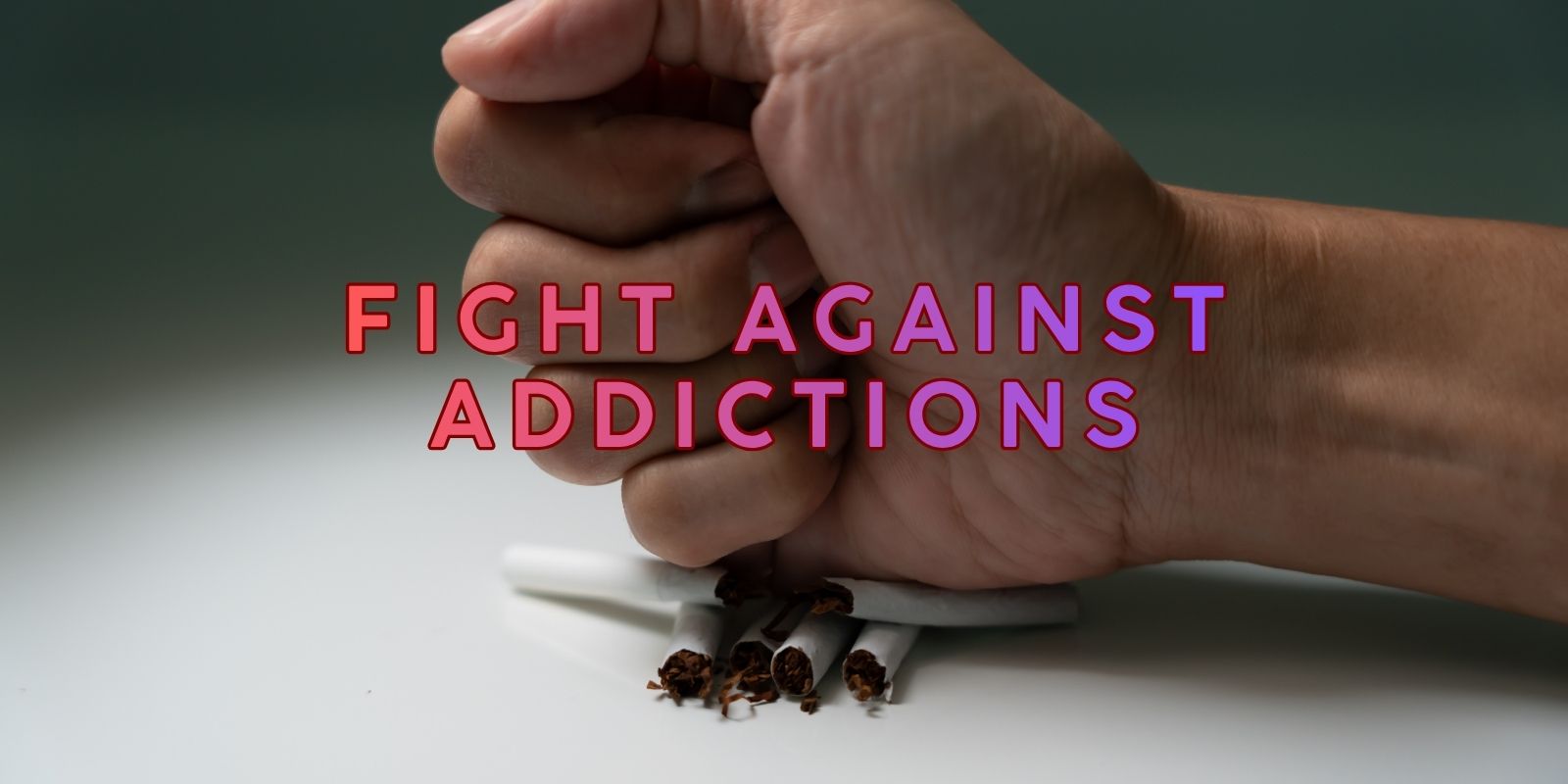Fight Against Addictions: How Hypnotherapy Supports Lasting Recovery
Fight Against Addictions: Addiction can quietly remodel a life. What starts as an occasional escape often becomes an automatic response wired into the subconscious, shaping decisions, relationships, and health. Hypnotherapy offers a compassionate, evidence-informed route into those hidden habits — not as a miracle cure but as a practical method to interrupt addictive loops, rebuild internal resources, and create a life where healthier choices feel natural rather than forced.
Hypnotherapy works by accessing the subconscious space where cravings, triggers, and old stories live, and then installing new responses that support safety, agency, and sustained change. Below you’ll find clear explanations, clinical techniques, trusted resources, and practical steps to move from surviving an addiction to living with choice and calm.
Table of Contents – Fight Against Addictions
- Overview: Why Addiction Persists
- How Hypnotherapy Supports Recovery
- Core Hypnotherapy Techniques for Addiction
- Programs & Practical Pathways
- Evidence & Trusted Resources
- Key Takeaways
- FAQs
- A Gentle Path Toward Freedom

Overview: Why Addiction Persists
Addiction is rarely about moral failure or lack of willpower. It’s a learned pattern: the brain finds shortcuts that relieve distress or provide reward, and with repetition those shortcuts become automatic. Over time, cues in the environment, emotional states, or certain people begin to trigger a cascade of craving and behavior that feels almost reflexive. Understanding this helps remove shame and opens the door to targeted change.
Many addictive behaviors are maintained by subconscious beliefs like “I need this to cope” or “I can’t relax otherwise.” These beliefs are reinforced by emotional memories and conditioned responses. Fight Against Addictions: Hypnotherapy approaches these patterns gently — not by forcing abstinence overnight but by helping the mind notice its own scripts and choose differently.
Recognizing addiction as an adaptive, though harmful, strategy reframes recovery as a learning process. Instead of brute resistance, the goal becomes retraining responses, strengthening internal resources, and building new routines that reduce the power of old triggers. This perspective informs how hypnotherapy is structured: it is restorative, skill-focused, and oriented toward lasting integration.
How Hypnotherapy Supports Recovery
Hypnotherapy guides clients into a relaxed, focused state where the conscious mind is quiet and the subconscious is accessible. In that state, carefully worded suggestions and imagery help shift the associations that previously favored addictive behavior. For example, an experience that once cued cravings can be reframed so it instead cues calm or curiosity, making it easier to choose alternatives in daily life.
Beyond reframing, hypnotherapy builds practical tools: anchors for instant calm, post-hypnotic suggestions that trigger helpful actions, and self-hypnosis routines clients use between sessions. Fight Against Addictions: These practices strengthen new neural pathways so healthier responses become automatic. Over time, the subconscious begins to favor the new behaviors, and the old loops lose their hold.
Importantly, hypnotherapy is often integrated into a broader recovery plan. When physiological dependence or medical risk is present, the therapy coordinates with medical care to ensure safety. Fight Against Addictions: When combined with counselling, peer support, or medication-assisted treatment, hypnosis fills a psychological niche that other approaches may miss: direct work with the subconscious drivers of habit.
Core Hypnotherapy Techniques for Addiction
Post-hypnotic suggestions are brief, practical instructions embedded while a client is in trance. These might target immediate coping behaviors — for instance, prompting the client to call a support person when craving rises — or change physical associations so a previously automatic handshake with a cigarette becomes neutral or aversive.
Anchoring creates a reliable cue for calm or confidence. During sessions, the therapist helps the client access a deeply resourceful state and links it to a small physical gesture or breath pattern. Later, that anchor can be triggered in real-world moments of temptation to shift physiology and decision-making in seconds.
Regression and reprocessing are used carefully and selectively to find formative events that shaped addictive beliefs. Rather than re-traumatizing, the therapist helps the client view past events with new understanding and safety, releasing shame or stuck emotion that may fuel ongoing use. Fight Against Addictions: When done with pacing and stabilization, regression can reduce the emotional charge that feeds compulsion.
Self-hypnosis training empowers clients to become active participants in recovery. Fight Against Addictions: Daily short recordings or breathing-and-suggestion routines reinforce therapy between sessions, which is critical — repeated practice cements new patterns more reliably than occasional in-office work alone.
Programs & Practical Pathways
Programs are tailored to the client’s goal: abstinence, harm reduction, or controlled use. An abstinence program prioritizes identity shift and relapse-prevention planning, strengthening an “I am a non-user” internal narrative. A moderation-focused program concentrates on redefining rituals, setting boundaries, and creating safe social strategies that allow chosen socializing without slipping into old patterns.
Typical programs include an initial assessment to map triggers and safety needs, a sequence of hypnosis sessions targeting core patterns, and practical coaching to build daily habits that support change. Reinforcement recordings and self-hypnosis practices are standard, ensuring clients have tools outside the clinic. When necessary, therapists coordinate with medical providers to manage withdrawal or pharmacotherapy safely.
For some clients, combining hypnotherapy with related services deepens impact: targeted smoking-cessation protocols help where nicotine and alcohol reinforce each other, and mindfulness-based strategies improve emotional regulation. For those exploring broader consciousness work as part of healing, the Quantum Consciousness Encounter offers deeper inner exploration and meaning-making that some clients find profoundly supportive of long-term recovery.
Evidence & Trusted Resources
Hypnotherapy is supported by clinical literature as a helpful adjunct for behavior change, coping, and relapse prevention. While results vary by individual, many studies and clinical reviews indicate benefits when hypnosis is combined with other evidence-based therapies. For an overview of addiction and clinical guidance, resources such as the Cleveland Clinic provide clear medical descriptions and treatment options that contextualize therapeutic choices.
Practical quitting strategies and action steps are also documented by leading health organizations; Harvard Health outlines concrete behavioral steps that complement psychological work, including planning, triggers management, and support systems. Combining clinical hypnosis with these measured steps increases safety and effectiveness, especially for people navigating both psychological drivers and physical dependence.
For clinic-specific information or broader reading on hypnotherapy’s role in treating addictive behaviors, the site’s broader hypnosis information page offers a helpful primer that connects readers to services and program descriptions. Integrating reputable medical and public-health guidance with therapeutic practice gives clients a balanced, safe, and realistic pathway toward recovery.
Key Takeaways
- Addiction is a learned, subconscious pattern — recovery is a relearning process, not just willpower.
- Hypnotherapy accesses subconscious drivers and installs practical coping tools that work in real time.
- Core techniques include post-hypnotic suggestion, anchoring, regression (when safe), and self-hypnosis training.
- Hypnosis is most effective when integrated with medical oversight, counselling, or peer support as needed.
- Trusted resources like the Cleveland Clinic and Harvard Health provide medical context that complements therapeutic work.
FAQs – Fight Against Addictions
How does hypnotherapy help with addiction?
Hypnotherapy guides you into a focused, relaxed state where the subconscious is receptive to new patterns. By using targeted suggestions, anchors, and repeated practice, the therapy helps weaken automatic cravings and replace them with safer, more adaptive responses.
Can hypnotherapy treat all types of addiction?
Hypnotherapy can support many behavioral and substance-related addictions — alcohol, nicotine, food, gambling, and more. It is rarely a standalone solution for severe physical dependence; rather, it works best as part of a comprehensive plan that includes medical and psychological supports if needed.
What happens during a typical session?
Sessions generally start with a consultation to map triggers and goals. The therapist then guides the client into a relaxed trance, delivers tailored suggestions or imagery, and teaches practical anchors or self-hypnosis routines for daily use. Safety and consent are prioritised throughout.
How many sessions are required?
There is no fixed number. Some people notice changes after a few sessions, while others benefit from a structured program over several months. Consistency, self-practice, and integration with other supports greatly influence outcomes.
Is hypnotherapy safe?
Yes. Hypnotherapy is non-invasive and safe when provided by trained, accredited clinicians. It emphasises pacing, emotional regulation, and collaboration. Anyone with complex psychiatric conditions should seek coordinated care with licensed mental health professionals.
A Gentle Path Toward Freedom
Fight Against Addictions: Recovery is rarely linear, but it is possible. Hypnotherapy offers a practical, compassionate route to weaken the pull of addiction and strengthen the inner resources needed for lasting change. Fight Against Addictions: By addressing the subconscious roots of habit, building reliable coping tools, and coordinating care when medical input is necessary, clients can move from being driven by cravings to being guided by choice.
If you want to learn more about how hypnosis supports behavioral change, start with our general Hypnosis Information page for an accessible primer. If you’re interested in deeper inner work that supports identity and purpose during recovery, our Quantum Consciousness Encounter describes expanded approaches that some clients find transformative. For smokers looking to quit as part of their recovery pathway, targeted programs such as Quit Smoking Hypnosis Australia can be integrated into a broader plan.
When clinical guidance, personal commitment, and trusted public-health advice are combined, recovery becomes not just possible but sustainable. For medical background on addiction and practical quitting steps, read the Cleveland Clinic’s overview and Harvard Health’s recommended action steps to complement your therapeutic journey.
